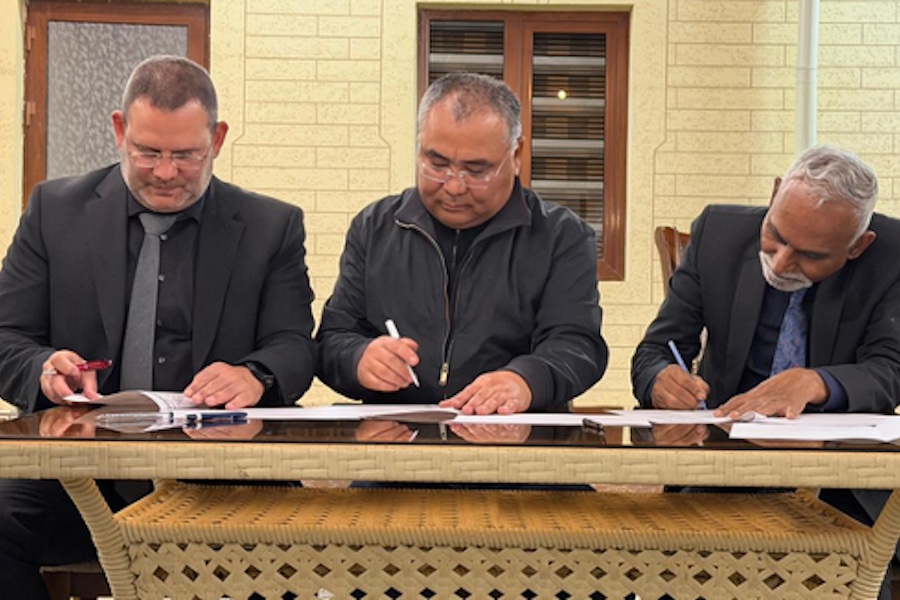#Raw Materials
ICAC announces the two winners of the 2021 Cotton Researcher of the Year Award
The ICAC honours a leading cotton researcher each year by awarding a certificate of recognition, a shield and an honorarium of US$1,000. The winners will be presented with the award during the 79th Plenary Meeting, 6-9 December 2021. The winners were selected by an independent panel of six eminent experts from six different countries.

Prof. Bruce Tabashnik is Head of the Department of Entomology at the University of Arizona, USA. He is one of the most influential scientists of our times in entomology and biological sciences, having led the Department of Entomology at University of Arizona for the last 24 years. Tabashnik's research has provided fundamental knowledge about insects for enhancing agricultural sustainability and reducing the use of harmful insecticides. Current work focuses on evolution of resistance to insecticidal proteins from the bacterium Bacillus thuringiensis (Bt). Web of Science/Clarivate Analytics recognized his work as highly cited in 2018 and 2019. Tabashnik is Fellow of the Royal Society of Entomology, UK and is the recipient of several awards including the Nan-Yao Su Award for Innovation and Creativity in Entomology, Entomological Society of America; and the Koffler Prize in Research/Scholarship/Creative Activity, University of Arizona. He recently won the Plant-Insect Ecosystems Lifetime Achievement Award in Entomology from the Entomological Society of America.

Jonathan F. Wendel is a Distinguished Professor in the Dept. of Ecology, Evolution, and Organismal Biology at Iowa State University, USA. Prof. Wendel’s research focuses on mechanisms underlying plant genomic and phenotypic diversify, with a special focus on the phenomenon of whole genome doubling, or polyploidy. Most of his ~300 publications focus on the cotton genus (Gossypium), in which two diploid and two polyploid species were each independently domesticated thousands of years ago. This natural evolutionary diversification, followed by parallel strong directional selection under domestication, provide a model framework for exploring the comparative basis of domestication, the origin of form and of diversity in nature, and the evolutionary consequences of genome doubling. His research has helped shape our understanding of the myriad genomic consequences of allopolyploidy, in which two diverged diploid genomes become reunited in a common nucleus. Moreover, his contributions have been recognised in all three major domains of professorial life: Master Teacher, 2005, for his role as graduate mentor and educator, Distinguished Professor, 2012, for national research prominence, and Outstanding Achievement in Departmental Leadership, 2009, for leadership excellence during his 15 years as department chair.
‘Every year, the Researcher of the Year Award gives me the honour to acknowledge the incredible accomplishments of a truly exceptional scientist — and this year, with two winners, I am doubly honoured’, said Dr Keshav Kranthi, ICAC Chief Scientist and winner of the first-ever ICAC Researcher of the Year award back in 2009. ‘Both scientists are globally renowned evolutionary biologists who wield great influence on cotton science, research and development. Seeing the dedication and accomplishments of Professors Tabashnik and Wendel gives me great optimism about what we can accomplish in coming years to ensure a sustainable global cotton industry’.
Executive Summary
The 2021 ICAC Cotton Researcher of the Year Award:
• Will be officially presented to two individuals at the ICAC’s 79th Plenary Meeting, a free, virtual event scheduled for 6-9 December 2021
• Is open to scientists from all disciplines of cotton production research, including ginning, fibre quality, and textile research
• Is determined by an independent award panel, consisting of five experts from at least four countries, representing the major disciplines in cotton
• Can only be presented to researchers from ICAC Member countries














